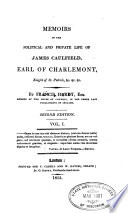 | Francis Hardy - 1812 - 446 pages
...in composition, are surely to he laughed at. " To abstract the mind from all local emotion would he impossible, if it were endeavoured, and would be foolish if it were possible." So says Johnson, in that truly eloquent passage, (one of the best, perhaps, he ever .wrote) and which... | |
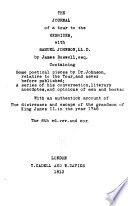 | James Boswell - 1813 - 484 pages
...benefits of knowledge, and the blessings of religion. To abstract the mind from all local emotions would be impossible, if it were endeavoured, and would...future, predominate over the present, advances us in the dignity of thinking beings. Far from me, and from my friends, be such frigid philosophy as may conduct... | |
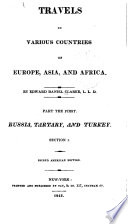 | Edward Daniel Clarke - 1813 - 512 pages
...tomb of Howard. It may be supposed we did not halt with indifference to view 'the hallowed spot. " To abstract the mind from all local emotion would be impossible if it were endeavoured, and it would be foolish if it were possible. Whatever withdraws us from the power of our senses ; whatever... | |
 | John Britton - 1813 - 138 pages
....but may be rendered useful and instructive. w Whatever/' says the eloquent author just quoted, *f withdraws us from the power of our senses, whatever makes the past, the distant, and the future, predominate over the present, advances us in the dignity of thinking beings." Thus,... | |
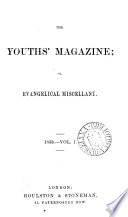 | 1845 - 752 pages
...important events. " To abstract the mind," says Dr. Johnson, in a passage which has been often quoted, " from all local emotion would be impossible if it were...endeavoured, and would be foolish if it were possible. Far from me, imd far from my friends be such frigid philosophy as may conduct us, indifferent and unmoved,... | |
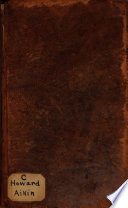 | John Aikin - 1814 - 198 pages
...tomb ef Howard. It may be supposed we did not halt with indifference to vie« the hallowed spot. " To abstract the mind from all local emotion would be impossible if it were endeavourOed, and it would be foolish if it were possible. Whatever withdraws us from the power of... | |
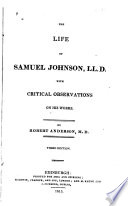 | Robert Anderson - 1815 - 660 pages
...and the blessings of religion," is remarkable for its piety, pathos, and sublimity. " To abstract ihe mind from all local emotion would be impossible, if...future predominate over the present, advances us in the dignity of thinking beings. Far from me, and from my friends, be such frigid philosophy as may conduct... | |
 | 1817 - 436 pages
...the Tomb of Howard, It may be supposed we did not halt with indifference to view the hallowed spot. " To abstract the mind from all local emotion, would be impossible if it were endeavoured, and it would be foolish if it were possible. Whatever withdraws us from the power of our senses ; whatever... | |
 | Samuel Johnson (écrivain.) - 1816 - 218 pages
...savage clans and roving barbarians derived the benefits of knowledge, and the blessings of religion. To abstract the mind from all local emotion would...future predominate over the present, advances us in the dignity of thinking beings. Far from me and from my friends be such frigid philosophy, as may conduct... | |
 | Samuel Johnson - 1816 - 432 pages
...savage clans and roving barbarians derived the benefits of knowledge, and the blessings of religion. To abstract the mind from all local emotion would...future predominate over the present, advances us in the dignity of thinking beings. Far from me and from my friends be such frigid philosophy, as may conduct... | |
| |